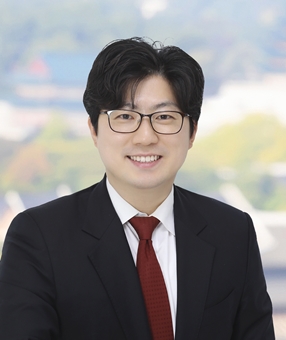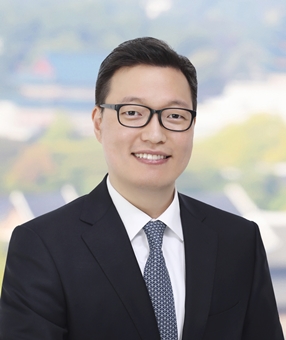On March 10, 2022, Yoon Suk-yeol of the People Power Party (“PPP”), the main opposition party, was elected as the 20th President of the Republic of Korea. His five-year term begins on May 10, 2022.
President-elect Yoon’s key pledges and expected policy priorities in the Technology, Media and Telecommunications sector are as follows:
- Promote the growth of artificial intelligence (AI) and software industries, including through increased public procurement
- Establish a “Media Innovation Commission” to promote the growth of Korea’s media and content industry
- Prevent unfair practices in the digital platform economy while minimizing unnecessary regulations that stifle innovation
- Prevent online sexual crimes while preserving protection from excessive government censorship
- Resolve disputes relating to network usage fees
- Increase support for domestic content creators, including through enhanced protection of copyright and intellectual property rights
- Support the development of Korea’s metaverse industry
- Secure infrastructure for 6G telecom services and promote further utilization of digital data.
After five years under the administration of President Moon Jae-In of the Democratic Party of Korea (“DPK”), the election of President-elect Yoon and his more conservative agenda could usher in meaningful changes to Korea’s information technology and communications policy. The immediate impact of the administration change may be somewhat limited, especially on the legislative front, as DPK continues to hold a firm majority in the National Assembly and will continue to do so at least until the current term ends in May 2024. We expect to have greater clarity in the coming weeks as to what we can expect from the new administration as the presidential transition gets fully underway.
We summarize below key election pledges and the expected policy priorities of the new administration in the field of information technology, media and telecommunications.
1. Key election pledges and expected policy direction of the new administration
(1) Promotion of AI and software industries
President-elect Yoon pledged to create the world’s largest AI cloud computing infrastructure that can be jointly used by academia, research institutes, and companies. President-elect Yoon also pledged to expand the government’s role as a market “leader” to nurture the development of the AI industry in Korea. Furthermore, to help the software industry take a leap forward, he stated that he would double the size of government procurement of IT solutions and significantly broaden the scale of software R&D projects ordered by the government.
The Yoon administration could consider regulatory efforts to increase transparency in AI algorithms. For example, there have been multiple bills aimed at enhancing the accountability of algorithms related to life, body and other issues that may have a material impact on the rights of data “principals.” However, concerns remain that increasing transparency and accountability of algorithms could hamper protection of trade secrets underlying the algorithms. It remains to be seen how the new administration’s initiatives regarding AI would affect regulations for the industry.
(2) Establishment of “Media Innovation Commission”
The PPP’s platform includes a commitment to create a Media Innovation Commission, an organization dedicated to promoting the media and content industry. According to the PPP’s platform, this commission would seek to establish a regulatory system to better respond to a rapidly changing media environment and promote the media industry while achieving certain societal goals. Furthermore, the PPP said it would seek to create a forum for discussion where the government, businesses, the academia, and civic groups can work together to enhance the competitiveness of the Korean media industry. Establishing an agency like this, however, requires the assent of the National Assembly. With the DPK holding majority of seats in the National Assembly for the time being, it remains to be seen whether the Yoon administration will have enough support from the National Assembly to create this commission.
(3) Online platform regulations
The PPP’s platform contains a pledge to regulate unfair practices in the digital platform economy and increase protection of consumer rights. The PPP has also expressed support for the industry’s self-regulation and has sought to keep regulation to a minimum to avoid hindering innovations in the platform sector.
Currently, a number of bills that are designed to regulate online platforms are pending in the National Assembly. Given that the DPK has been the main driving force behind those bills, it is possible that they will lose some momentum under the Yoon administration, or undergo revisions before being considered again. However, major directional changes in the broader movement to regulate unfair practices by large online platform service providers are unlikely. The positions of the relevant agencies, including the Korea Fair Trade Commission, Korea Communications Commission, and Ministry of Science and ICT, will continue to be of particular importance.
(4) Online sex crime and harmful content
The DPK spearheaded the effort to introduce “Nth-room prevention laws (amendments to the Telecommunication Business Act and the Communications Network Act),” a set of regulations aimed at preventing online distribution of harmful content and digital sex crimes. The agencies are evaluating the performance of pre-identification technology, with the goal of using it to prevent online sex crimes and distribution of harmful content.
President-elect Yoon has previously commented that the Nth-room prevention laws do not go far enough to deter online sex crimes and expressed support for an even harsher punishment for such crimes. The new administration may propose bills to revise these regulations.
(5) Network usage fees
Although the PPP's platform does not explicitly mention network usage fees, President-elect Yoon has signaled support for reaching a resolution regarding the issue of whether global content providers should be charged network usage fee issue. The DPK and Representative Young-Sik Kim of the PPP have each proposed legislative bills related to network usage fees. It is possible that the bills could be enacted with bipartisan support. But President-elect Yoon has also emphasized the importance of content innovation as part of his strategy to promote Korea’s leadership in the digital economy, and it remains to be seen how those goals will affect the resolution of the network usage fee issue.
(6) Regulations on content ecosystem such as OTT services
The PPP has pledged to increase government support for content producers to enhance the Korean over-the-top (OTT) ecosystems' global competitiveness. Potential initiatives include providing support to domestic small/medium-sized content producers who produce Korean culture-related content in overseas locations. Furthermore, the PPP stated that it would seek to strengthen Korea’s “cultural sovereignty” and promote the “Korean wave” of culture and media content by enhancing copyright protection to match global standards.
In addition, Cheol-Soo Ahn, the former third-party candidate who withdrew his candidacy and publicly endorsed then-candidate Yoon prior to the election, has made a note of OTT services' increasing control over intellectual property rights. He has pledged to protect the Korean cultural content and intellectual property rights so that the creators and developers of such content can receive their fair share of any profits, which would further incentivize new innovation. Further, Ahn has expressed concerns about the power of global app market operators and has expressed support for taking a tougher stance on fighting unfair practices that affect the gaming industry and app marketplaces. Ahn, a well-known technology entrepreneur, could play a prominent role in the new administration’s information technology policymaking.
(7) Regulations related to metaverse
The PPP has expressed support for establishing a government-led metaverse industry support system, including a new legislation that kick-starts efforts relating to the metaverse and establishes a metaverse “e-government.” To this end, the PPP has stated that it would propose establishing a special student quota for metaverse-related departments at universities and increasing jobs in the metaverse industry. In addition, the PPP may also seek to introduce changes to promote and regulate digital financial currencies such as non-fungible tokens (i.e, NFT).
2. Next steps
We expect that the administration change will result in a number of policy changes. President-elect Yoon’s domestic agenda includes business-friendly policies including promotion of free competition in the marketplace and increasing government support to promote the growth of “nascent” industries. Given President-elect Yoon’s background as a former Prosecutor General, however, some predict a more aggressive enforcement against illegal conduct or misconduct by corporations. The composition of and actions by the Transition Team should provide further clues about the likely direction of the new administration. We will continue to monitor the progress and provide you with updates.
Related Topics










